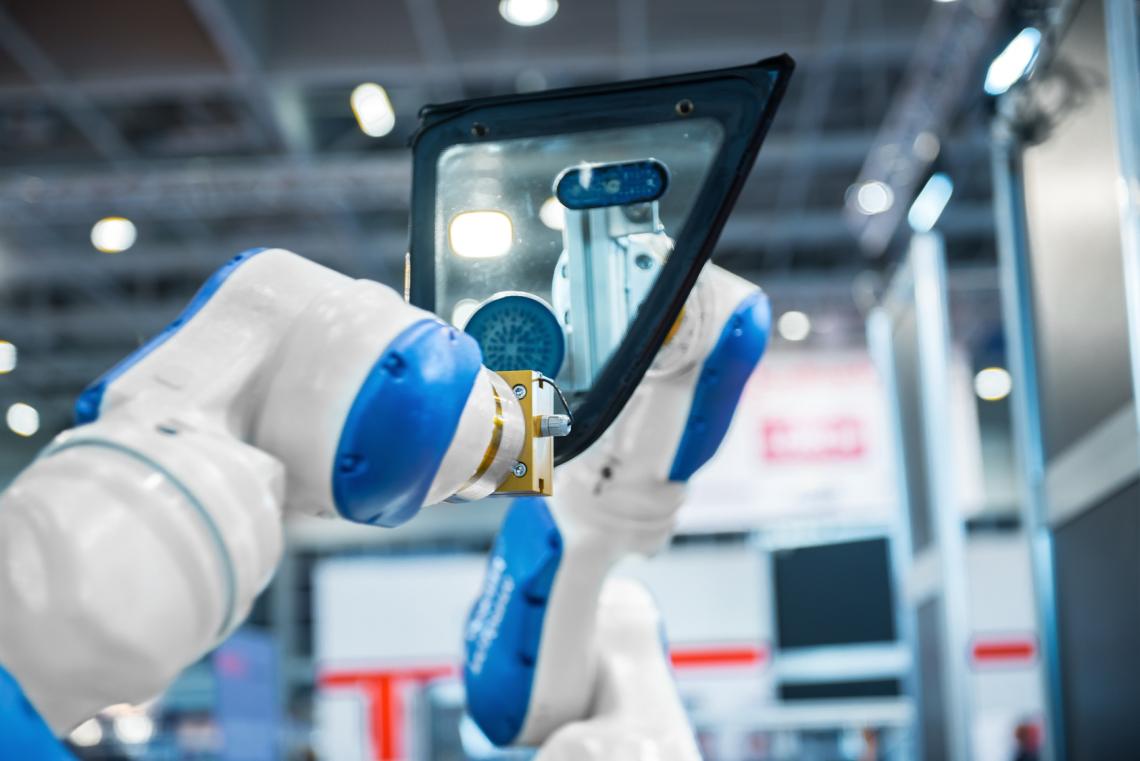Dr. Joachim Lepping
Digital Transformation Technologies


Industry 4.0 refers to the current transformation process in value creation in the production industry. Functionally, Industry 4.0 initially describes the ability of machines, equipment and computers but also products and logistical systems to interconnect ad hoc with each other in a factory. With the aid of digital technologies, all components contribute to the value-creation system – including across companies.
Such interconnected systems, which communicate and cooperate with each other via the Internet, are referred to as cyber-physical systems. They are of great strategic importance for the production industry and fundamental for the entire business segment. The near real-time linking of hardware components with digital technologies of information and communication technology open up new opportunities and paths for the entire production and work world.
The digital transformation in production is also triggering changes in the market structures. Through the Internet of Things, new business models and cooperative value-creation processes are developed. New players with IT skills are penetrating the established markets and exerting massive influence on companies’ strategic decisions. This not only poses innovation policy issues, but also legal issues: The interconnecting, processing and use of the collected data must be examined from a liability law perspective. Handling of warranty obligations for interconnected systems with components from various manufacturers nor the functional safety or the protection from production losses resulting from cyberattacks or cyber-sabotage have been satisfactorily addressed in the past. We therefore, for example, work to guarantee digital sovereignty and resiliency of the systems.
Through self-controlling and automated production and logistical processes, new forms of interaction between the employees and technical systems are also enabled. The transformation of the industrial work has great importance for the organisational structures and employees themselves. Thus, we understand Industry 4.0 to be a socio-technical system in which technological developments, societal needs and economic challenges influence each other.
We advise our customers conceptually and concretely on the content- and methodological tool-related design of innovation and technology policy measures. In so doing, we take into consideration all of the aforementioned dimensions of the Industry 4.0 socio-technical system in order to identify regulatory relevant approaches for accelerating innovation or eliminating barriers to innovation.
From a holistic perspective, we acquire know-how for our political policy support services and derive from them transformation potential for developments and solutions in other systems.
We analyse the Industry 4.0 innovation system with regards to stakeholder structures, research and development requirements, market mechanisms, start-up activities and additional factors for success. In this regard, we rely on our expertise in technical, economic and social science issues as well as many years of experience in conducting evaluations, innovation and technology analyses. We possess reliable and trustworthy personal contacts to the relevant representatives from business, science and society.
Moreover, we organise discussion groups, workshops, conferences and trade fair appearances. Our challenge is to offer the suitable format for the respective contents and intentions and, in so doing, to support our customers while addressing practically relevant themes which extend to trade fair exhibits.